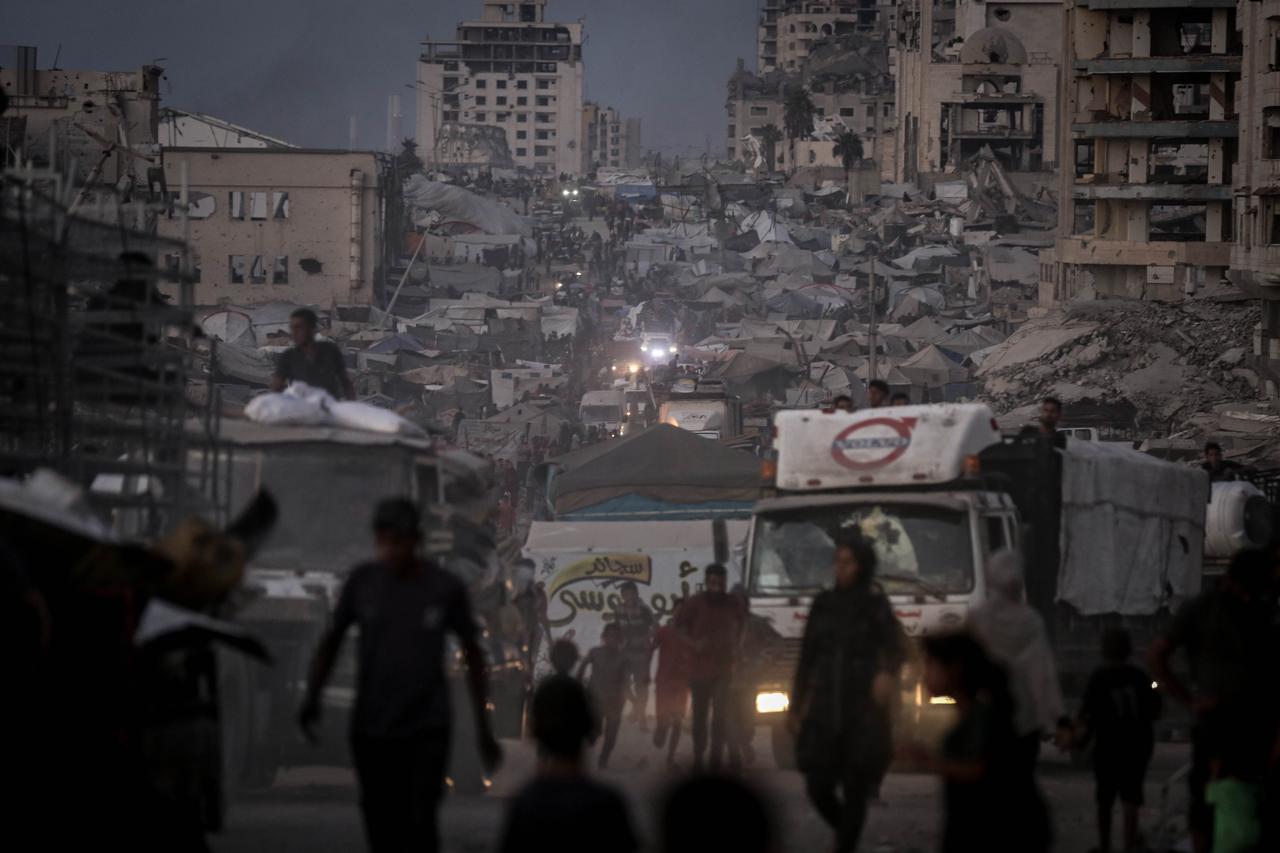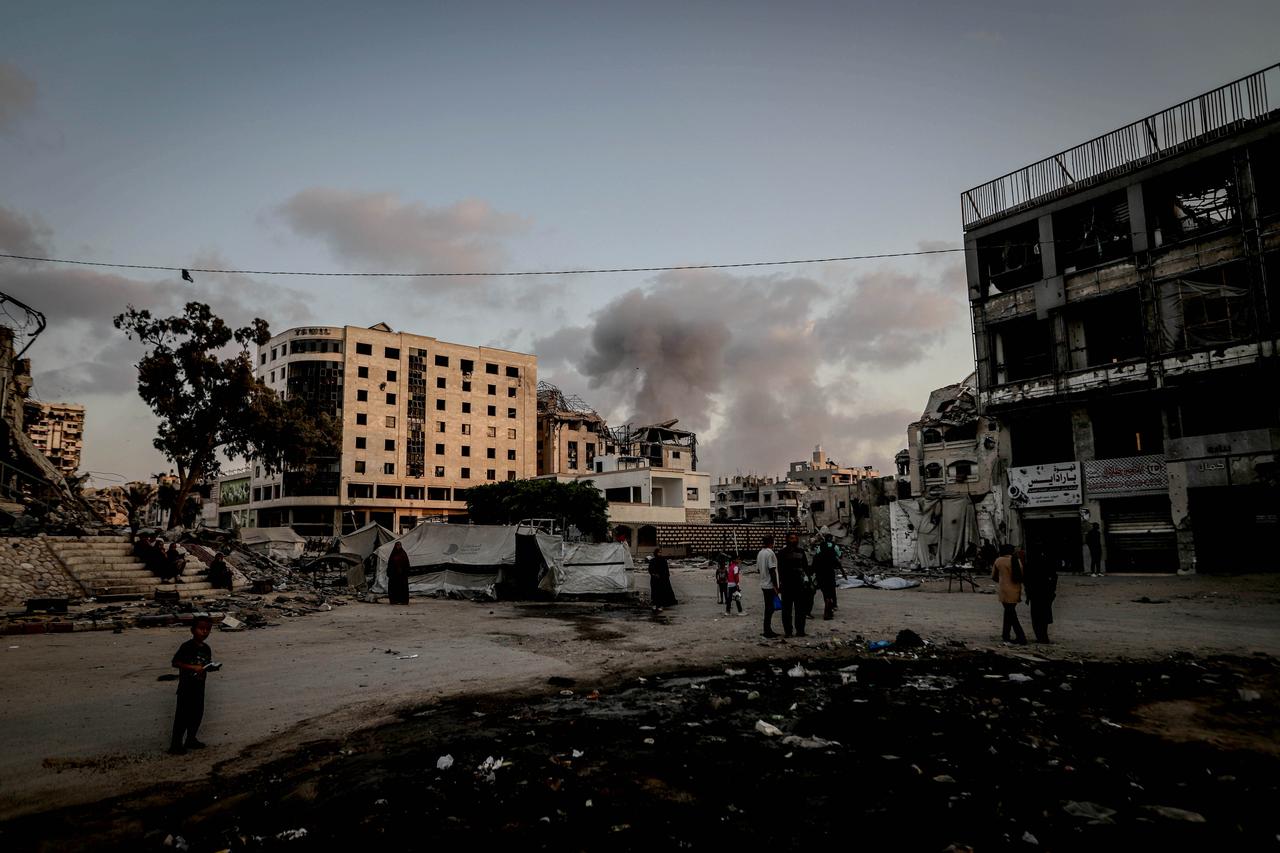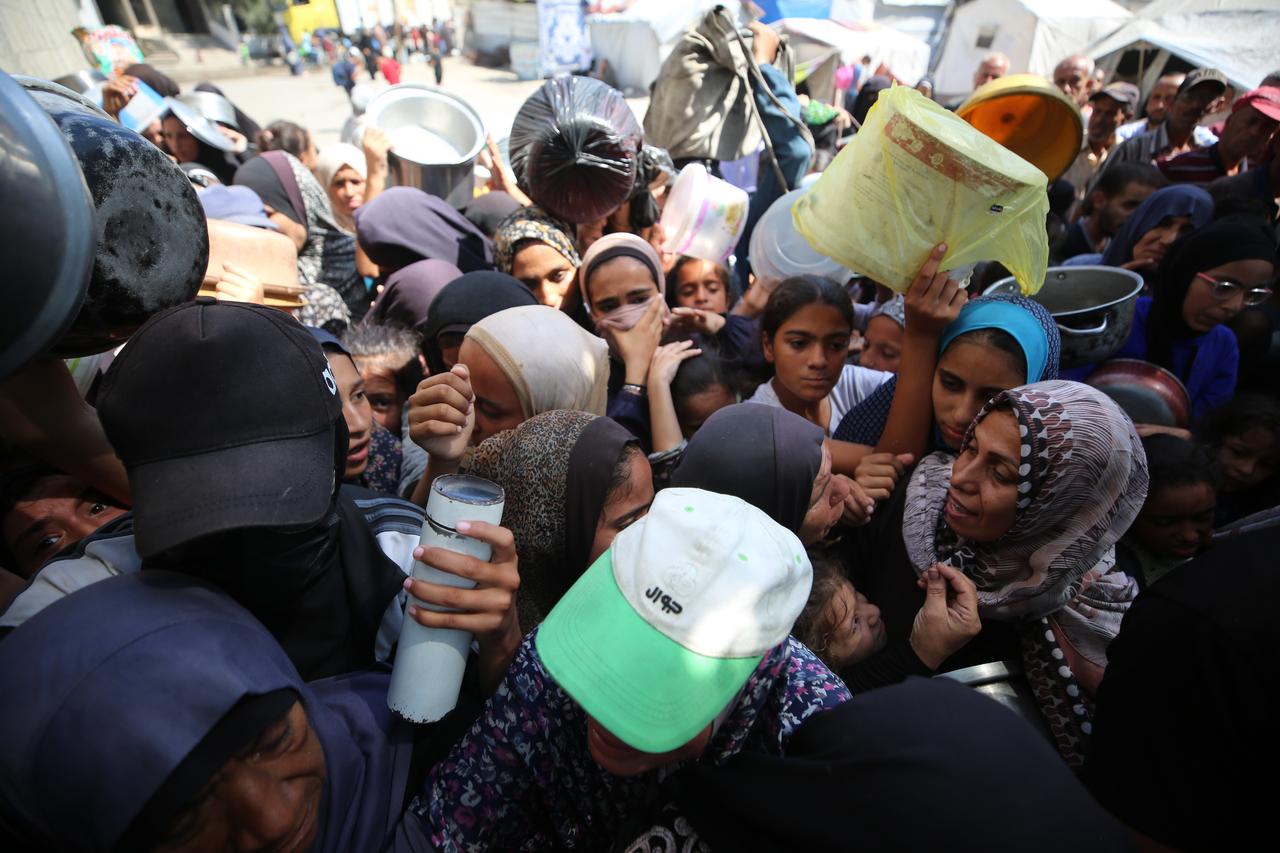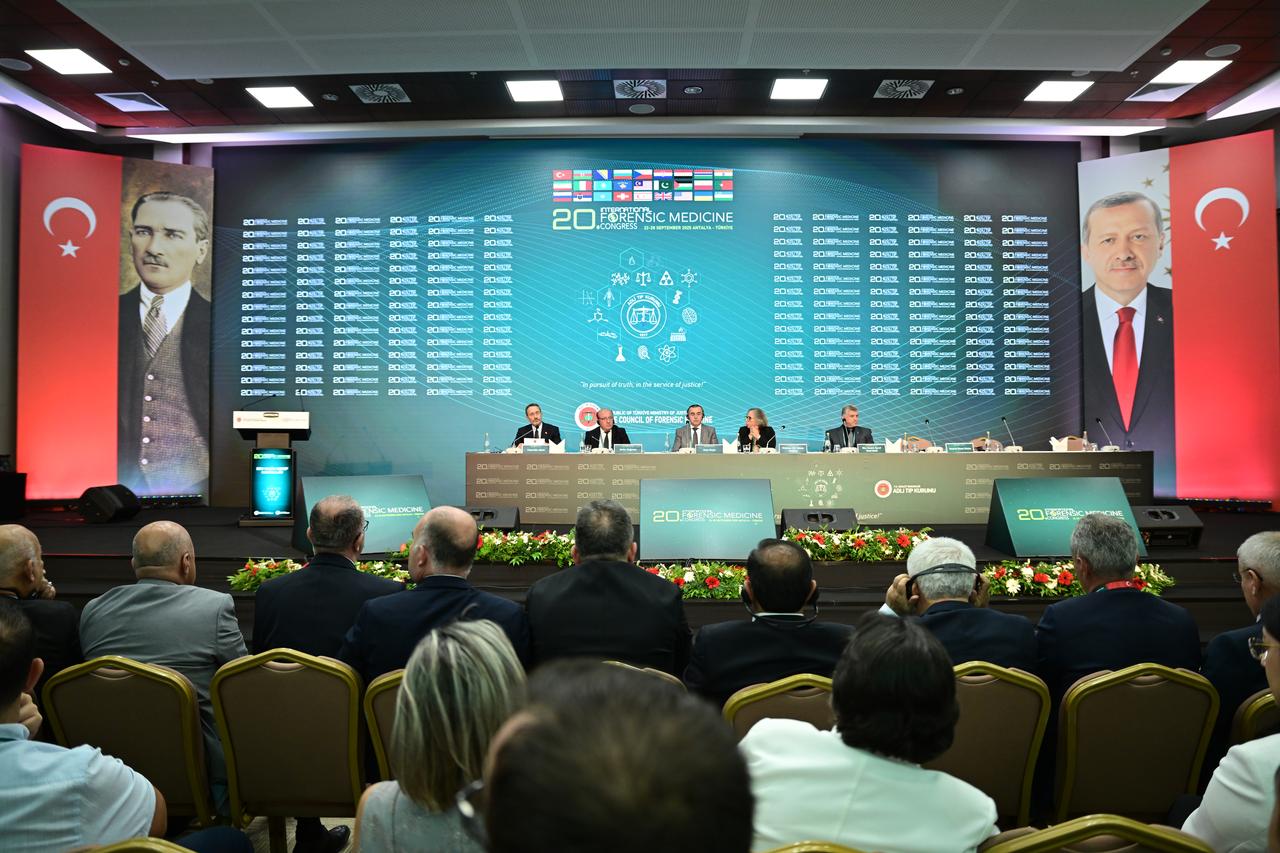
As Israel’s war in Gaza nears its third year, questions are growing not only about when it will end but also about what comes after, how justice will be pursued and how victims will be identified.
At the 20th International Forensic Medicine Days in Antalya, specialists from 27 countries said Bosnia and Herzegovina’s experience offers an accountability model.
Despite deliberate attempts to erase evidence during the 1990s war, Bosnia’s forensic process became a framework for documenting mass crimes, one experts say, that could guide Gaza.
Mujo Begic, a university professor and head of the Office for Missing Persons in the Bosnian town of Bihac, recalled enduring the three-year siege of the city during the 1992–1995 war.
He said Bosnia’s history shows that even when perpetrators try to hide their crimes, victims can still be identified and dignity restored.
“Through modern forensic techniques, mass crimes have been documented,” Begic said.
Over 32,000 people were reported missing in Bosnia. To date, over 24,000 have been exhumed and identified, while about 7,500 remain unaccounted for—most from the Srebrenica genocide of July 1995, when Bosnian Serb forces killed more than 8,000 Muslim men and boys despite the presence of Dutch peacekeepers.
One of the greatest obstacles, Begic said, was the systematic effort to erase evidence.
“Perpetrators systematically and deliberately concealed and relocated mass graves to erase evidence of their crimes, which has complicated the search process,” he explained.
Many victims’ remains were scattered across multiple sites. The body of 14-year-old Senad Beganovic, for example, was recovered from four different graves.

Advanced DNA analysis, introduced through the Institute for Missing Persons with support from the International Commission on Missing Persons (ICMP), proved decisive in Bosnia.
“The Bosnian model of search, exhumation and identification can be applied globally,” Begic said. “Experts from Bosnia are ready to assist Gaza in the identification of genocide victims.”
He added that technical work must also be tied to accountability. “It is, therefore, necessary, as in the case of Bosnia, to establish an International Criminal Tribunal for Gaza. Such a court should prosecute those most responsible for the crimes committed in Gaza,” he said.
In Bosnia, the International Criminal Tribunal for the former Yugoslavia prosecuted senior political, police, and military leaders.
In total, 90 people were sentenced, including Radovan Karadzic and Ratko Mladic, both given life imprisonment for genocide.

Kosovo’s experience also offers lessons. U.N. investigators last week concluded that Israel is committing genocide in Gaza, where more than 65,400 Palestinians—most of them women and children—have been killed and nearly 170,000 wounded since October 2023.
Naim Uka, a forensic pathologist and president of the Kosovan Association of Forensic Sciences, said the absence of reliable information remains the biggest obstacle in identifying mass graves.
“Unfortunately, missing information is a crucial problem in the process of identification in general,” Uka said.
During the 1998–1999 Kosovo War, an estimated 13,000 people were killed, and thousands went missing.
Many ethnic Albanian victims were buried in mass graves, with some later transferred to secret sites inside Serbia in attempts to cover up evidence. More than 1,600 remain unaccounted for today.
Looking at Gaza, Uka warned that uncovering evidence would be especially difficult given the scale of the crimes.
“The state (Israel) has all the things to hide the crimes and to make mass graves everywhere. The crucial problem is to find them,” he said. “And to find them without information is impossible.”

Uka noted that forensic investigations are often delayed by restrictions on military data, which can remain classified for decades. Political agendas, he added, also complicate the work.
“Whenever we are facing the identification process, some of the political issues become a problem,” he said.
Still, Uka insisted progress is possible through cooperation with international institutions.
“It requires working with institutions, especially the International Committee of the Red Cross, the ICMP, and based on the protocols from Interpol,” he said.
As Gaza faces an uncertain future, both Begic and Uka underlined that Bosnia and Kosovo’s painful experiences highlight the importance of forensic investigations.
They stressed that international cooperation will be essential to uncover the truth, identify victims and ensure accountability.
Meanwhile, at least 65,926 Palestinians have been killed in Israel’s genocidal war on the Gaza Strip since October 2023, the Health Ministry announced on Saturday.
According to the ministry, 77 bodies were brought to hospitals in the last 24 hours, while 265 people were injured, taking the number of injuries to 167,783 in the Israeli onslaught.
Israel resumed its attacks on the Gaza Strip on March 18 and has since killed 13,060 people and injured 55,742 others, shattering a ceasefire and prisoner exchange agreement that took hold in January.
Last November, the International Criminal Court (ICC) issued arrest warrants for Israeli Prime Minister Benjamin Netanyahu and his former Defense Minister Yoav Gallant for war crimes and crimes against humanity in Gaza.
Additionally, Israel faces a genocide case at the International Court of Justice for its war on the enclave.